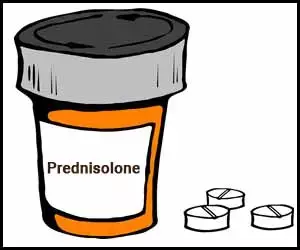- Home
- Medical news & Guidelines
- Anesthesiology
- Cardiology and CTVS
- Critical Care
- Dentistry
- Dermatology
- Diabetes and Endocrinology
- ENT
- Gastroenterology
- Medicine
- Nephrology
- Neurology
- Obstretics-Gynaecology
- Oncology
- Ophthalmology
- Orthopaedics
- Pediatrics-Neonatology
- Psychiatry
- Pulmonology
- Radiology
- Surgery
- Urology
- Laboratory Medicine
- Diet
- Nursing
- Paramedical
- Physiotherapy
- Health news
- Fact Check
- Bone Health Fact Check
- Brain Health Fact Check
- Cancer Related Fact Check
- Child Care Fact Check
- Dental and oral health fact check
- Diabetes and metabolic health fact check
- Diet and Nutrition Fact Check
- Eye and ENT Care Fact Check
- Fitness fact check
- Gut health fact check
- Heart health fact check
- Kidney health fact check
- Medical education fact check
- Men's health fact check
- Respiratory fact check
- Skin and hair care fact check
- Vaccine and Immunization fact check
- Women's health fact check
- AYUSH
- State News
- Andaman and Nicobar Islands
- Andhra Pradesh
- Arunachal Pradesh
- Assam
- Bihar
- Chandigarh
- Chattisgarh
- Dadra and Nagar Haveli
- Daman and Diu
- Delhi
- Goa
- Gujarat
- Haryana
- Himachal Pradesh
- Jammu & Kashmir
- Jharkhand
- Karnataka
- Kerala
- Ladakh
- Lakshadweep
- Madhya Pradesh
- Maharashtra
- Manipur
- Meghalaya
- Mizoram
- Nagaland
- Odisha
- Puducherry
- Punjab
- Rajasthan
- Sikkim
- Tamil Nadu
- Telangana
- Tripura
- Uttar Pradesh
- Uttrakhand
- West Bengal
- Medical Education
- Industry
Prednisolone use in URTI fails to Prevent Relapse of Steroid-Sensitive nephrotic syndrome: JAMA

Low-dose prednisolone during upper respiratory tract infection does not prevent relapse in children with relapsing steroid-sensitive nephrotic syndrome, according to a recent study published in the JAMA Pediatrics.
In children with corticosteroid-sensitive nephrotic syndrome, many relapses are triggered by upper respiratory tract infections. Four small studies found that administration of daily low-dose prednisolone for 5 to 7 days at the time of an upper respiratory tract infection reduced the risk of relapse, but the generalizability of their findings is limited by the location of the studies and selection of the study population.
A group of researchers conducted a study to investigate the use of daily low-dose prednisolone for the treatment of upper respiratory tract infection-related relapses.
This double-blind, placebo-controlled randomized clinical trial (Prednisolone in Nephrotic Syndrome [PREDNOS] 2) evaluated 365 children with relapsing steroid-sensitive nephrotic syndrome with and without background immunosuppressive treatment at 122 pediatric departments in the UK from February 1, 2013, to January 31, 2020. Data from the modified intention-to-treat population were analyzed from July 1, 2020, to December 31, 2020. At the start of an upper respiratory tract infection, children received 6 days of prednisolone, 15 mg/m2 daily, or matching placebo preparation. Those already taking alternate-day prednisolone rounded their daily dose using trial medication to the equivalent of 15 mg/m2 daily or their alternate-day dose, whichever was greater.
The primary outcome was the incidence of first upper respiratory tract infection-related relapse. Secondary outcomes included the overall rate of relapse, changes in background immunosuppressive treatment, cumulative dose of prednisolone, rates of serious adverse events, the incidence of corticosteroid adverse effects, and quality of life.
The results of the study are as follows:
The modified intention-to-treat analysis population comprised 271 children (mean [SD] age, 7.6 [3.5] years; 174 [64.2%] male), with 134 in the prednisolone arm and 137 in the placebo arm. The number of patients experiencing an upper respiratory tract infection-related relapse was 56 of 131 (42.7%) in the prednisolone arm and 58 of 131 (44.3%) in the placebo arm. No evidence was found that the treatment effect differed according to background immunosuppressive treatment. No significant differences were found in secondary outcomes between the treatment arms. A post hoc subgroup analysis assessing the primary outcome in 54 children of South Asian ethnicity (risk ratio, 0.66; 95% CI, 0.40-1.10) vs 208 children of other ethnicity found no difference in efficacy of the intervention in those of South Asian ethnicity.
Thus, the researchers concluded that the results of PREDNOS 2 suggest that administering 6 days of daily low-dose prednisolone at the time of an upper respiratory tract infection does not reduce the risk of relapse of nephrotic syndrome in children in the UK. Further work is needed to investigate interethnic differences in treatment response.
Reference:
Evaluation of Daily Low-Dose Prednisolone During Upper Respiratory Tract Infection to Prevent Relapse in Children With Relapsing Steroid-Sensitive Nephrotic Syndrome: The PREDNOS 2 Randomized Clinical Trial by Martin T. Christian, et al. published in the JAMA Pediatrics.
https://jamanetwork.com/journals/jamapediatrics/fullarticle/2787006?guestAccessKey=6d5f67a6-7778-4234-90ac-e20ba9ea08d0&utm_source=silverchair&utm_medium=email&utm_campaign=article_alert-jamapediatrics&utm_content=olf&utm_term=122021
Dr. Shravani Dali has completed her BDS from Pravara institute of medical sciences, loni. Following which she extensively worked in the healthcare sector for 2+ years. She has been actively involved in writing blogs in field of health and wellness. Currently she is pursuing her Masters of public health-health administration from Tata institute of social sciences. She can be contacted at editorial@medicaldialogues.in.
Dr Kamal Kant Kohli-MBBS, DTCD- a chest specialist with more than 30 years of practice and a flair for writing clinical articles, Dr Kamal Kant Kohli joined Medical Dialogues as a Chief Editor of Medical News. Besides writing articles, as an editor, he proofreads and verifies all the medical content published on Medical Dialogues including those coming from journals, studies,medical conferences,guidelines etc. Email: drkohli@medicaldialogues.in. Contact no. 011-43720751


